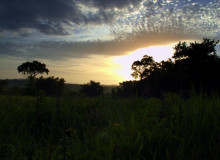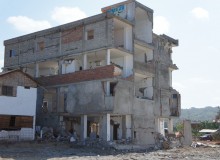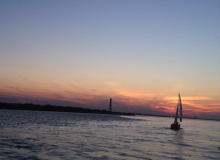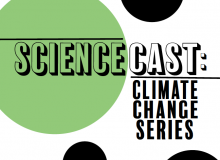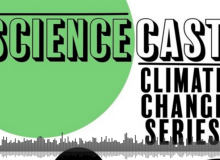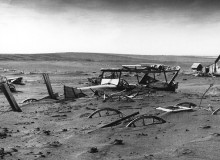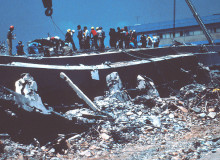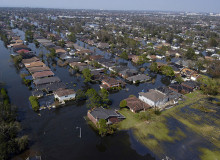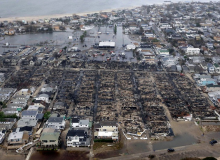Natural Disasters
Storms are getting bigger. Droughts are getting longer. As the climate changes, natural disasters are ramping up - here's how we're dealing with them, trying to prevent the worst consequences and learning how to clean up after them.
SUNY College of Environmental Science and Forestry
Ecological disturbances have long been considered destructive, but in reality, can be an essential life-giving force that maintains ecosystem health.
George Washington University, Hacienda Victoria
My experience in Ecuador as a social worker has taught me how important it is to educate people that live in poor conditions, and how to sustain themselves while keeping their environments clean.
Planet Forward Correspondent | George Washington University
Instead of letting Hurricane Sandy define the fate of the community, residents of Long Beach Island have since been able to rebuild and rethink their approach to sustainability.
University of Wisconsin - Madison
In the third episode of Sciencecast, we talk with Dr. Jonathan Patz, director of the Global Health Institute at the University of Wisconsin-Madison, and explore the relationship between climate change and health issues around the world.
University of Wisconsin - Madison
Introducing Sciencecast: Climate Change Series, from The Daily Cardinal at The University of Wisconsin-Madison! Twice a month, we will explore various facets of climate change through interviews with university experts.
The George Washington University, Spring 2016 Editorial Intern
College students all over the nation are uniting to send safe water to Flint, Michigan in the midst of their water crisis.
Planet Forward
One of the worst environmental disasters in history wasn’t the result of a superstorm, an earthquake or a fuel spill.
Associate Director, Planet Forward
In September of 1985, a massive earthquake struck Mexico City. The city's former aquifer foundation played a part in the extent of the destruction. What does this mean for drought-ridden California?
Planet Forward, The George Washington University
This August marks the 10-year anniversary of Hurricane Katrina, which remains one of the deadliest and costly hurricanes to ever hit the United States. When the hurricane hit, the resulting surge breached the levees of New Orleans and caused... Read More
The George Washington University Student
The National Climate Assessment predicts a 70% increase in precipitation which will lead to more frequent and dangerous storms in the Northeast region. How prepared are you?

